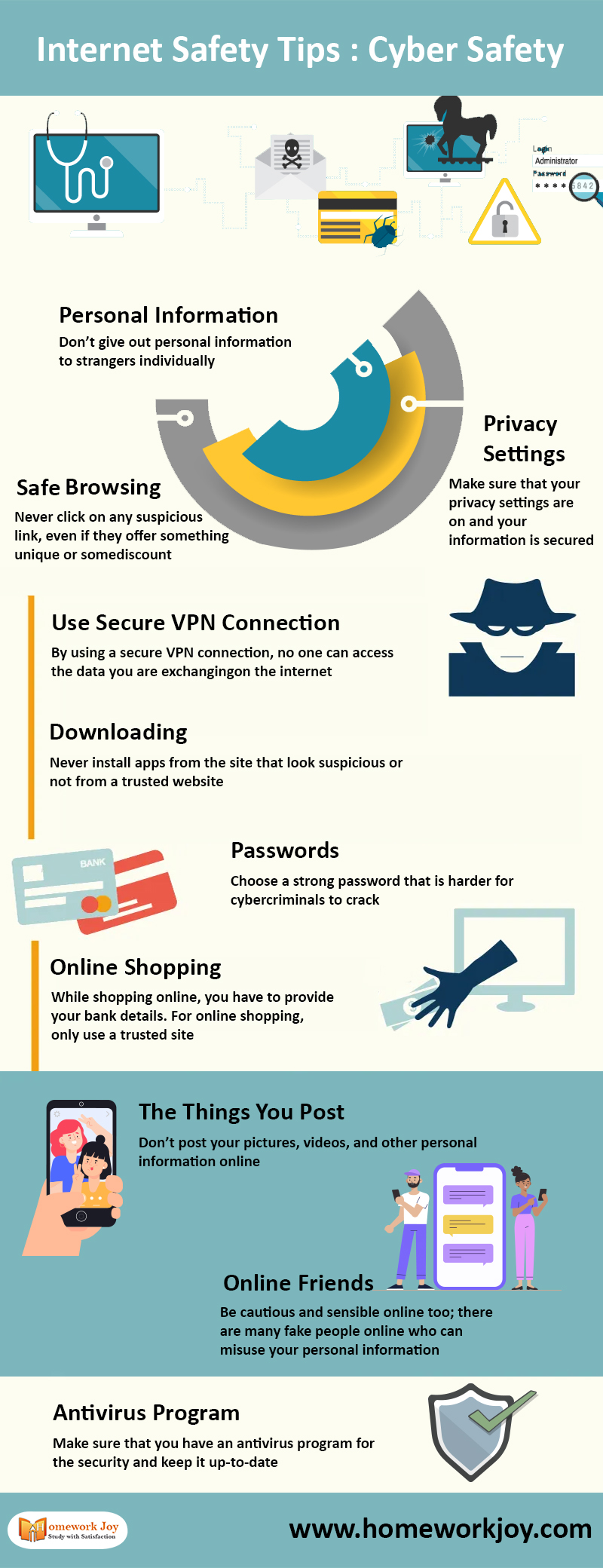In today’s world-vast, the majority of us use the internet to socialize, work, learn, and play. But the internet sometimes feels like a dangerous place these days due to hacks, scams, malware, and more. Smartphones, laptops, and tablets, etc. all these internet-connected appliances have opened ways to more risk. Yet the good news is that there are easy ways to keep your internet safe and easy to use.
Internet crimes are increasing. The use of the internet for paying bills, shopping and payment services, internet banking, and now digital wallets is common today. Therefore, cyber safety is essential for those people who access online banking facilities. Even big companies, government websites, and others also hacked by cybercriminals.
Internet Safety Tips
Here are some internet safety tips to help you browse safely on the internet.
1. Personal Information
You should think twice before giving your personal information to strangers. Since cybercriminals can misuse it. And if it is essential, then use some anti-tracking tools such as Cliqz or Ghostery.
2. Privacy Settings
Make sure that your privacy settings are on, and your information is secured.
3. Safe Browsing
Never click on any suspicious link, even if they offer something unique or a discount. As hackers mostly use lurid content to provoke users. After the user clicks on the website, they use his information.
4. Use Secure VPN Connection
Make your connections are secure. By using a secure VPN connection, no one can access the data you are exchanging on the internet.
5. Downloading
Never install apps from the site that look suspicious or not from a trusted website. Sometimes cybercriminals trick you into downloading malware.
6. Passwords
Choose a strong password that is harder for cybercriminals to crack. In addition to this, use a password manager, which will help you in creating a complex password.
7. Online Shopping
While shopping online, you have to provide your bank details, and cybercriminals are eager to get banking details. Therefore, for online shopping, you should only use a trusted site.
8. The Things You Post
Don’t post your pictures, videos, and other personal information online, since most of the applications do not have the option to delete posts. So be careful about the things you post.
9. Online Friends
Be cautious and sensible online, too, as you are in your personal life; there are many fake people online who can misuse your personal information.
10. Antivirus Program
Make sure that you have an antivirus program for security and keep it up-to-date. And stay current with your operating system updates since they provide more protection.
If you need more help related to similar topics, take instant online homework help from our professors.
